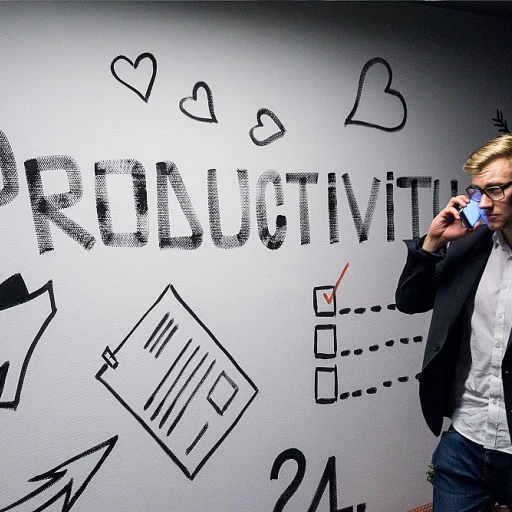
Understanding the Chief People Officer's Role
Unveiling the Responsibilities of a People Leader
In the ever-evolving landscape of business, the role of the Chief People Officer (CPO) has become pivotal in steering organizations towards achieving long-term success. The CPO serves as the bridge between leadership and employees, navigating through the complexities of talent management and human resource strategies. This role is crucial in fostering a company culture that enhances employee engagement and experience while aligning with organizational goals. The CPO's responsibility extends beyond traditional human resources; it includes shaping the organization's people strategy to ensure that the workforce is agile, motivated, and well-equipped to meet business demands. This role involves working closely with other executives to promote a thriving work environment that prioritizes employee well-being and cultivates organizational success. As companies continue to embrace digital transformation, the position of the CPO must adapt to incorporate AI-driven solutions that enhance efficiency in talent acquisition and management. By leveraging these technologies, CPOs can provide deeper insights into workforce analytics, facilitating data-driven decisions that support the business's objectives. In this digital age, understanding the nuances of the CPO role is crucial. For more insight into how AI shapes these dynamics, exploring resources on job abandonment and AI’s role in HR can provide valuable perspectives on the current challenges and opportunities faced by CPOs as they lead their organizations into the future.AI-Driven HR Strategies
Unveiling AI-Enhanced HR Techniques
In the ever-evolving landscape of human resources, the integration of AI-driven strategies is becoming essential for Chief People Officers (CPOs). This is not merely a futuristic idea; it's an ongoing transformation influencing how companies manage, engage, and develop their human resources. The role of the CPO is pivotal in driving AI strategies that align with the business goals. With AI, CPOs can now:- Analyze employee data more accurately to anticipate trends and make informed decisions.
- Streamline processes by automating routine tasks, reducing time spent on administrative duties, and allowing for a focus on strategic management.
- Enhance talent acquisition by utilizing AI algorithms to identify suitable candidates more efficiently.
- Boost employee engagement through personalized employee experience initiatives powered by AI insights.
Enhancing Employee Experience with AI
Revolutionizing Employee Journeys with Artificial Intelligence
The role of the chief people officer (CPO) extends beyond traditional human resources functions as organizations increasingly integrate AI technologies. A strategic aspect of this evolution lies in enhancing the employee experience. By leveraging AI, CPOs can create a business environment that aligns with the organization's culture, fostering improved engagement and satisfaction among employees.
Integrating AI into the work environment allows for a more personalized employee experience. From customized onboarding processes to tailored learning and development pathways, AI-driven tools can analyze individual employee data to recommend specific resources and support. This personalization adds value to employees' journeys and boosts their long-term commitment to the company.
AI also assists CPOs in managing the well-being of employees. Predictive analytics can help in identifying potential burnout or disengagement by monitoring patterns in work habits, productivity, and employee interactions. By proactively addressing these issues, companies can nurture a healthier and more supportive work environment.
Moreover, AI enhances communication within an organization by facilitating transparent and efficient feedback mechanisms. Tools such as chatbots or virtual HR assistants can provide employees with instant access to answers and resources, thus reducing dependency on human resource personnel for basic inquiries. This not only streamlines communication but also empowers employees in their roles.
Such advancements in AI-driven strategies have reshaped how human resources management addresses employee needs, reinforcing the evolving CPO role as pivotal in driving organizational success. By prioritizing an enriched employee experience, companies can foster a culture of continuous improvement and agility.
For a deeper dive into how AI can specifically bolster HR decisions, consider exploring enhancing HR decisions with artificial intelligence.
Ethical Considerations in AI for HR
Integrating Ethical AI in Human Resources
The incorporation of artificial intelligence into the human resources sector has brought to the forefront a range of ethical considerations that are crucial for Chief People Officers (CPOs) to address. Given the significant influence that AI has on decision-making processes within organizations, the CPO's role as a leader in people strategy is more essential than ever. Acknowledging the impact of AI on business practices underscores the importance of creating a framework that aligns with the core values of the company. Developing ethical AI strategies involves ensuring transparency in how AI systems operate and make decisions related to employee management and talent acquisition. This is integral to maintaining trust and fostering a positive company culture. Furthermore, safeguarding employee data is a critical responsibility. As AI systems collect and analyze vast amounts of information, the need for robust data protection practices becomes paramount. Organizations must prioritize employee privacy and ensure compliance with data protection laws to prevent breaches that can affect employee trust and engagement. CPOs must also be vigilant about biases that AI technologies might introduce or perpetuate. Unbiased AI-driven HR strategies require ongoing scrutiny and the implementation of processes that identify and correct systemic biases. This approach ensures that AI tools contribute positively to a diverse and inclusive work environment, promoting organizational success in the long term. Lastly, CPOs should advocate for the ethical use of AI by promoting education and awareness within their teams. Understanding the impact of AI on human resources and encouraging dialogue can help cultivate a culture where ethical considerations are prioritized and addressed collaboratively. By leading in these areas, Chief People Officers play a pivotal role in crafting an ethical framework that supports the sustainable integration of AI into human resources, ultimately enhancing both employee experience and organizational success.AI in Talent Acquisition and Management
Integrating Artificial Intelligence into Talent Acquisition
The integration of artificial intelligence into talent acquisition is reshaping how organizations approach human resources. As the role of Chief People Officer (CPO) continues to evolve, leveraging AI for talent management becomes imperative. AI-driven talent acquisition strategies are helping companies identify and attract the best talent, optimizing recruitment processes and aligning them with long-term organizational goals.
AI tools and platforms can sift through vast amounts of data to identify patterns and trends that a human might miss, allowing CPOs to develop more effective people strategies. These tools help in filtering candidate applications, assessing skills, and predicting future performance. This level of efficiency is crucial for Chief Human Resources Officers tasked with driving employee engagement and fostering a strong company culture.
AI's Role in Talent Management and Employee Engagement
Once talent is acquired, AI continues to play a pivotal role in managing and engaging employees. By analyzing data on employee performance and engagement, AI can help CPOs and other leadership officers identify potential areas for improvement. This might include recognizing opportunities for professional development or pinpointing elements of the work environment that need addressing to enhance employee experience.
Moreover, AI technologies provide a foundation for personalized employee experiences by tailoring development programs and resources to individual needs. This not only promotes growth but also aligns with the organization's human resources strategies for long-term success.
Finally, AI's impact on talent acquisition and management reflects a broader trend towards strategic HR management where data-driven insights lead to more informed and effective decisions. As CPOs navigate this evolving landscape, the integration of AI stands out as a game-changer in enhancing not just the processes but the overall culture within companies.













